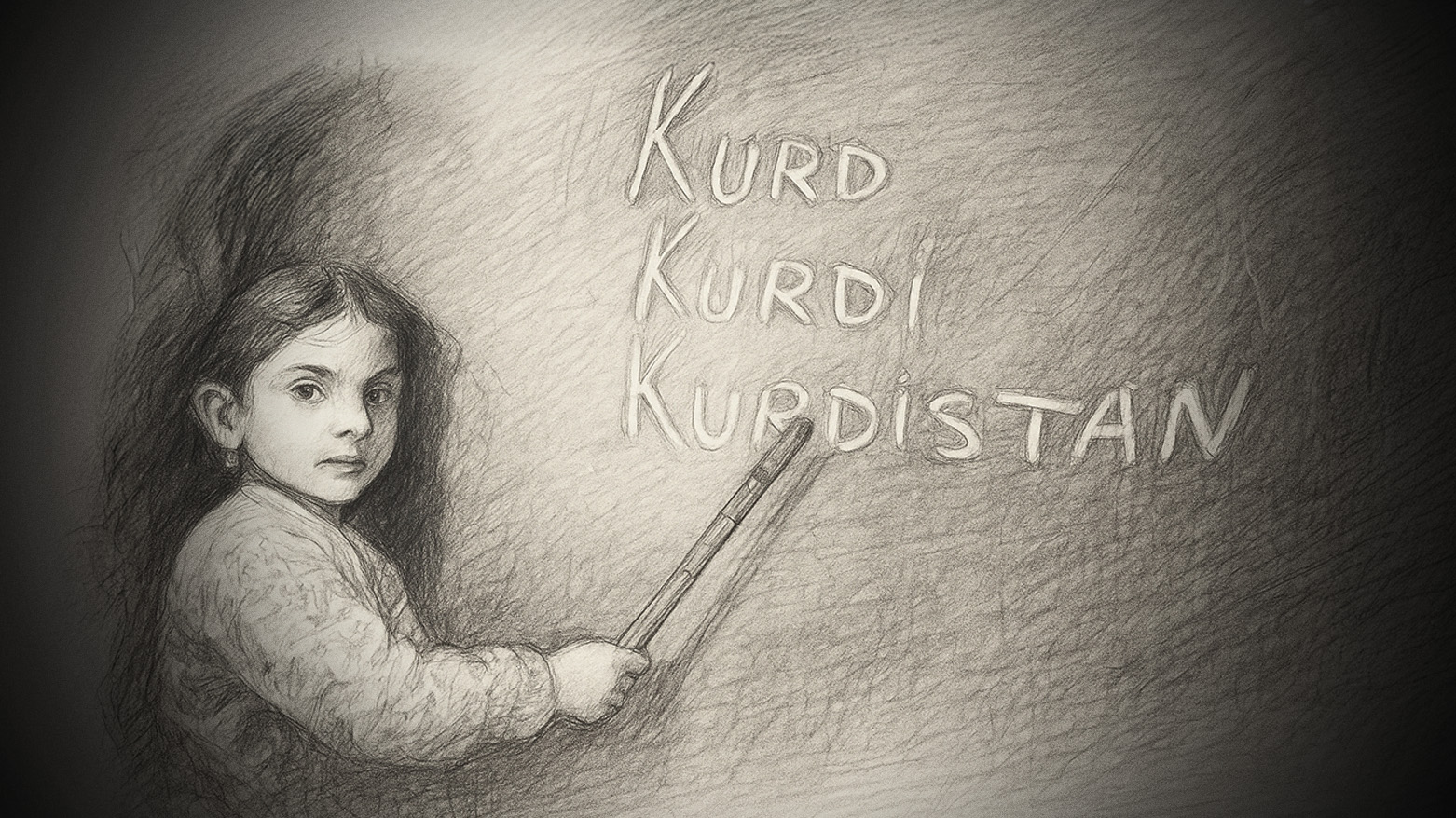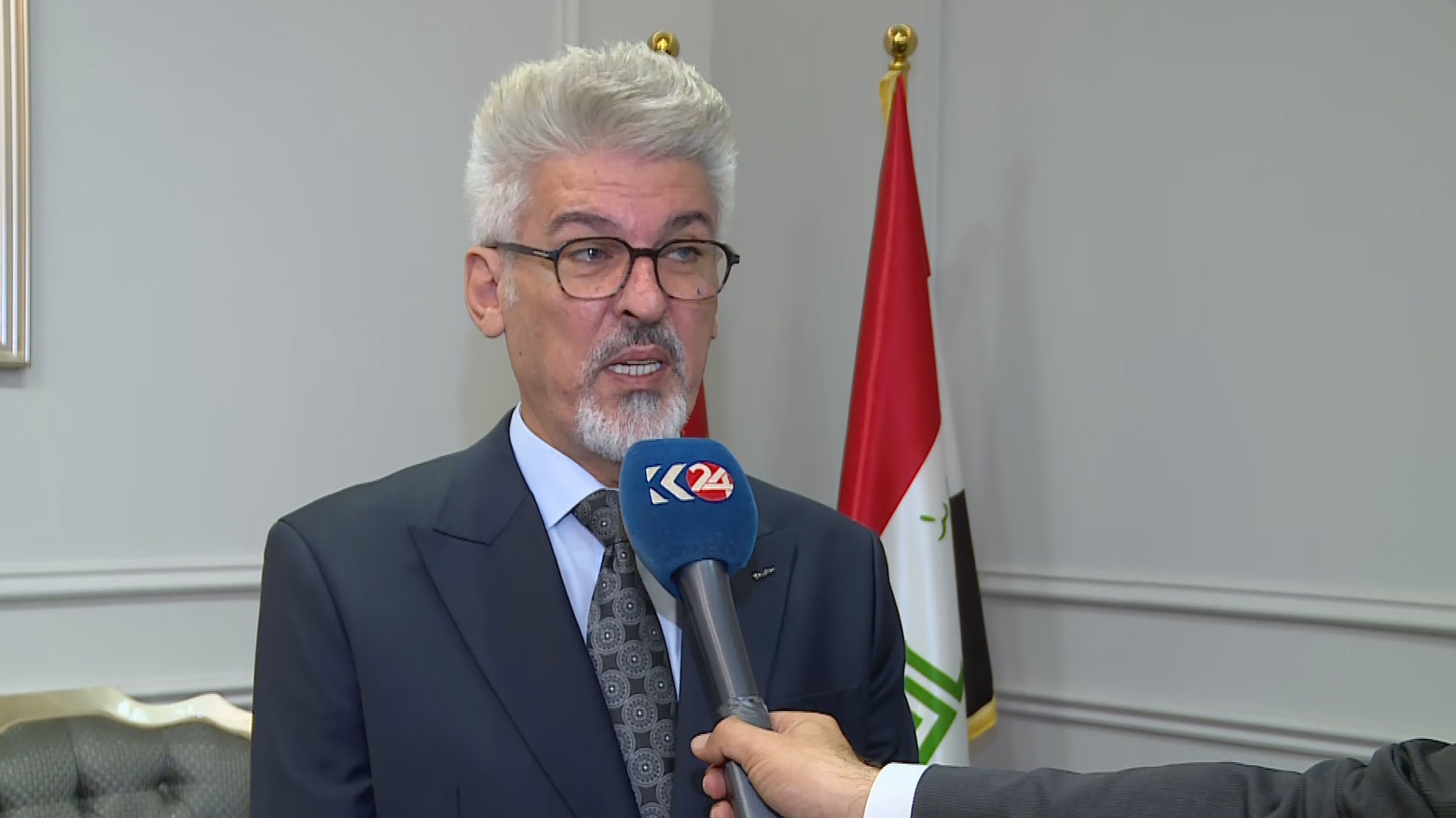KRG Hails 'Great Demand' as 2,500 Diaspora Kurds in 42 Countries Begin Global Language Course
The KRG's 4th Kurdish diaspora language course has begun with a record 2,500 students from 42 countries, a major effort to preserve the mother tongue.

ERBIL (Kurdistan24) – In a powerful demonstration of the Kurdistan Regional Government's expanding commitment to its global diaspora, the fourth iteration of a landmark online Kurdish language course has officially begun, drawing an unprecedented 2,500 students from 42 different countries across Europe and Asia.
The announcement, made by Ministry of Education spokesperson Dr. Saman Siwaili on Sunday, which also marked World Teachers' Day, highlights the surging demand for cultural and linguistic connection among Kurds living abroad and underscores a sophisticated, multi-faceted strategy to preserve the Kurdish mother tongue for future generations.
In a statement provided to Kurdistan24, Dr. Siwaili framed the initiative's launch within the context of honoring the region's educators, extending congratulations to teachers both within Kurdistan and those serving their communities abroad.
"On behalf of the Ministry of Education, we congratulate all the teachers of Kurdistan, the Kurdish teachers abroad, and those teachers who teach online," he stated. "We thank them for their stance, efforts, and hard work."
His remarks carried significant weight, as he also took the moment to explicitly thank the teachers for their profound resilience and patience during past financial crises, which he attributed to the policies of the federal government in Baghdad. He praised them for "enduring the difficult situation and keeping the doors of the schools open," casting their dedication as a patriotic act that has safeguarded the nation's future.
This spirit of dedication is now being channeled into a global digital classroom. The fourth language course, a collaborative project between the Ministry of Education and the Confederation of the Kurdistan Diaspora, has seen a remarkable surge in interest.
"What is pleasing is that there has been a great demand for this course, and so far, 2,500 people have registered their names," Dr. Siwaili announced.
He explained that this large cohort of participants has been organized into several groups to receive instruction in both the Sorani and Kurmanji (Badini) dialects. The sheer geographic spread of the students, residing in 42 distinct nations, he said, "is a sign of the regional government's commitment to preserving the mother tongue abroad."

This initiative, which first launched in 2022, has rapidly become a cornerstone of the KRG's diaspora engagement. The first three courses have already successfully certified over 1,000 compatriots, providing them with an official credential from the Ministry of Education and a vital link to their heritage.
The program is structured to be both accessible and comprehensive, with classes held online once a week every Sunday. Instruction is provided by skilled and experienced teachers in the major Kurdish dialects, ensuring a wide reach across the diverse Kurdish linguistic landscape.
As previous reports from Kurdistan24 have noted, the curriculum has included Sorani, Badini, and Kurmanji, catering to the varied backgrounds of the global Kurdish community.
The motivation behind this widespread participation is deeply personal and rooted in a desire to maintain a tangible connection to the homeland. Laura Chicho, a young Kurd living in Germany who previously enrolled in the course with her brother Carlos, expressed a sentiment shared by many.
"I would like to be able to speak and write in Kurdish if I go back to Kurdistan," she said, articulating the spiritual and practical importance of language as a bridge across geographical divides.
This sentiment is strongly championed by the older generation, who see it as their duty to pass on their heritage. Laura's father, Chicho Siwemili, a Kurdish activist also based in Germany, conveyed his profound gratitude to the KRG for the project.
"As parents, it is our responsibility to teach our children the Kurdish language," he stated, arguing that fluency in their native tongue not only preserves national identity but also empowers Kurdish youth to contribute uniquely to the societies where they now live "in a Kurdish way."
The program's success is not confined to an online portal; it has a vibrant, real-world impact in Kurdish communities around the globe. A prime example is in Nashville, Tennessee, a city known as "Little Kurdistan" for having the largest concentration of Kurds in the United States.
In July, a graduation ceremony celebrated 64 young students who had successfully learned to read and write in their mother tongue through a local school established in coordination with the KRG Ministry of Education and the Kurdish Diaspora Federation in America.
In a video message for the occasion, KRG Minister of Education Alan Hama Saeed praised the effort, stating, "We are pleased with the high level of coordination between the Ministry of Education and the Kurdish [Diaspora] Federation; we saw its results when 64 Kurdish students received certificates for learning the Kurdish language."
The voices of the students themselves offer the most compelling evidence of the program's value. Sira Sadiq, a graduate from the Nashville course, told a Kurdistan24 reporter, "We benefited greatly from our teachers, and we are grateful for their hard work. It is important for every Kurdish child to learn their mother tongue so they can read and write better. Long live the Kurds, long live Kurdistan!"
This success is powered by the passion of volunteers on the ground, like Nazdar Jamil, a mother and teacher at the Nashville school. "It is very important that we teach our children the Kurdish language, and I call on all parents to do the same," she urged.
The Kurdish Diaspora Confederation has been a crucial partner in this endeavor, emphasizing in its announcements that preserving the Kurdish language is vital to safeguarding the national identity of the Kurdish people. As the fourth course gets underway with its largest and most diverse cohort yet, it represents a significant scaling-up of this mission.
The KRG's initiative is more than just an educational program; it is a strategic act of cultural preservation, a bridge connecting a global nation, and a testament to the enduring power of the mother tongue to unite a people, no matter where they are in the world.
The Unbreakable Bond: Preserving the Kurdish Language as an Act of Cultural Survival
For the Kurdish people, a nation of over 40 million spread across the mountainous regions of Türkiye, Iran, Iraq, and Syria, language is more than a means of communication; it is the lifeblood of their identity, a vessel for their rich cultural heritage, and a symbol of their enduring resilience in the face of persistent adversity.
The preservation of the Kurdish language, in all its dialects, is therefore not merely an academic pursuit but a crucial act of cultural survival. Initiatives such as the Kurdish Language Course for the Kurdistan Diaspora stand as a powerful testament to this profound commitment, offering a vital link for a scattered people to their ancestral roots.
The Kurdish language, an Indo-European language with ancient roots in Mesopotamia, has for centuries been the primary vehicle for transmitting Kurdish folklore, music, history, and social values from one generation to the next.
This linguistic heritage, however, has been systematically targeted by assimilationist policies in the nation-states where Kurds reside. In Türkiye, for decades, the use of the Kurdish language in public life was strictly forbidden, with the government promoting a narrative of a single, homogenous Turkish identity.
Similarly, in Syria and Iran, the Kurdish language has faced varying degrees of suppression in education and official spheres. This sustained "linguicide," as some scholars have termed it, has not only hindered the language's natural development but has also created a profound sense of cultural alienation among younger generations of Kurds.
The consequences of this suppression are far-reaching. When a language is silenced, a world of knowledge, stories, and unique perspectives is endangered. For the Kurds, this has meant a tangible threat to the rich tapestry of their oral traditions, including epic poems, folk songs, and proverbs that encapsulate their collective memory and worldview.
It is in this context of existential threat that initiatives to preserve and revitalize the Kurdish language have emerged with a sense of urgency and profound importance. Among the most notable of these is the Kurdish Language Course for the Kurdistan Diaspora, an online program launched by the Kurdistan Regional Government's (KRG) Ministry of Education.
This initiative directly addresses the challenges faced by the large and growing Kurdish diaspora, many of whom have fled persecution and conflict in their homelands. For children and young adults growing up in foreign lands, the risk of losing their mother tongue, and with it their connection to their heritage, is particularly acute.
The diaspora language course is a direct and effective response to this challenge. By offering instruction in the three main Kurdish dialects—Sorani and Kurmanji (Badini)—the program caters to the linguistic diversity within the Kurdish community itself. The online format makes it accessible to Kurds across the globe, from Europe to North America and beyond. T
he provision of official certificates from the Ministry of Education lends the program legitimacy and underscores the KRG's commitment to fostering a sense of shared identity among all Kurds. Since its inception, the course has successfully certified over 1,000 students, demonstrating a clear and growing demand for such cultural education.
The significance of this program extends beyond the practicalities of language acquisition. For the participants, it is a deeply personal journey of reconnecting with their roots. Learning their native tongue allows them to communicate with older family members, to understand the nuances of their culture, and to feel a sense of belonging to a broader Kurdish community.
As one parent of a student in the program expressed, teaching children the Kurdish language is a parental responsibility crucial for preserving their national identity. This sentiment encapsulates the understanding that language is the key to unlocking a treasure trove of cultural knowledge and fostering a strong sense of self.
Beyond formal educational programs, a new generation of young Kurdish activists is also playing a crucial role in language preservation by collecting and archiving folklore, songs, and stories. These grassroots efforts, often undertaken at great personal risk, are vital for safeguarding the endangered dialects and the rich vocabulary they contain.
The development of digital resources, such as online dictionaries and translation tools, is another promising frontier in the effort to ensure the Kurdish language thrives in the 21st century.
Finally, the fight to preserve the Kurdish language is a fight for the very soul of the Kurdish people. It is a struggle against historical and ongoing attempts at cultural erasure and a testament to their unwavering determination to maintain their unique identity. Initiatives like the Kurdish Language Course for the Kurdistan Diaspora are not merely educational programs; they are acts of cultural reclamation and a powerful symbol of hope for the future.
By nurturing their mother tongue, the Kurdish people are ensuring that their stories will continue to be told, their songs will continue to be sung, and their vibrant culture will continue to enrich the world for generations to come. The continued vitality of the Kurdish language is the ultimate measure of their success.